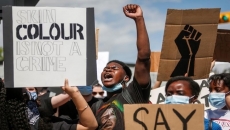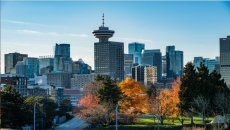Companies that have laid off workers are telling the Bank of Canada they plan to refill some positions over the next year, but many hiring plans remain muted over COVID-19-related uncertainty.
The bank's quarterly business outlook survey published Monday suggests many service sector and energy companies don't expect a return to pre-pandemic employment levels.
About one-third say they have used a federal wage subsidy to reduce or avoid layoffs, while other firms looking to rehire or hire new staff cited an emergency federal benefit for workers as a hurdle to their plans.
The latest figures from the federal government show the $45-billion wage subsidy has paid nearly $17.1 billion to 245,160 companies as of June 29. Meanwhile, the Canada Emergency Response Benefit, or CERB, has paid $53.53 billion in benefits to 8.16 million people as of June 28 since it was introduced in late March.
The worry among workers about losing their job rose to the highest level seen in the bank's regular survey of consumer expectations, released alongside the business outlook survey.
As well, workers' expectations of how easily they could find new work dropped to the lowest level since the 2015 oil price shock.
Consumers' expectations for wage growth were below what they anticipated for inflation, while the outlook for growth in household income dropped to its lowest level in the survey's history.
Lockdowns and stay-at-home requests from governments have put the economy in a deep freeze since mid-March, with the thaw beginning in recent weeks as restrictions are rolled back.
The central bank's business survey detailed some of the impact.
Nearly half of all businesses reported an outright decline of their sales in the past 12 months because of COVID-19, low energy prices and the uncertainty both wrought.
More than half of businesses expect their total sales over the next 12 months to be lower than they were in the last year, with future sales indicators at record lows.
About half of firms expect their sales will "mostly recover" within the next year as COVID-19's effects recede, but the expectations of a return to pre-pandemic levels often depend on lifting government-mandated restrictions. Some companies said they could get back to normal operations within a month of public health restrictions being lifted.
Companies' plans to invest in themselves have been cut back. Those companies planning a bump in capital budgets are often trying to digitize their operations, or boost productivity in the context of staff working from home.
Adding to the business uncertainty is how consumers will respond as economic activity continues to restart.
The consumer survey said spending expectations have tumbled, which the banks says suggests consumers have become more cautious due to the economic impact and health risks related to the pandemic.
The bank said consumers expect to spend mostly on essentials. They expect to spend less on durable goods like cars and furniture, as well as for services that involve face-to-face interactions like eating out, travel or going to the movies.
"Another sign of caution is that many respondents expect their work to return to normal sooner than their spending and social habits," the survey report says. "This points to some excess supply and disinflationary pressures."
The business outlook survey and Canadian survey of consumer expectations come ahead of the Bank of Canada's next interest rate announcement and monetary policy report on July 15.
The central bank is expected to keep its key interest rate on hold at 0.25 per cent, while the monetary policy report will include an update to its economic forecast.






